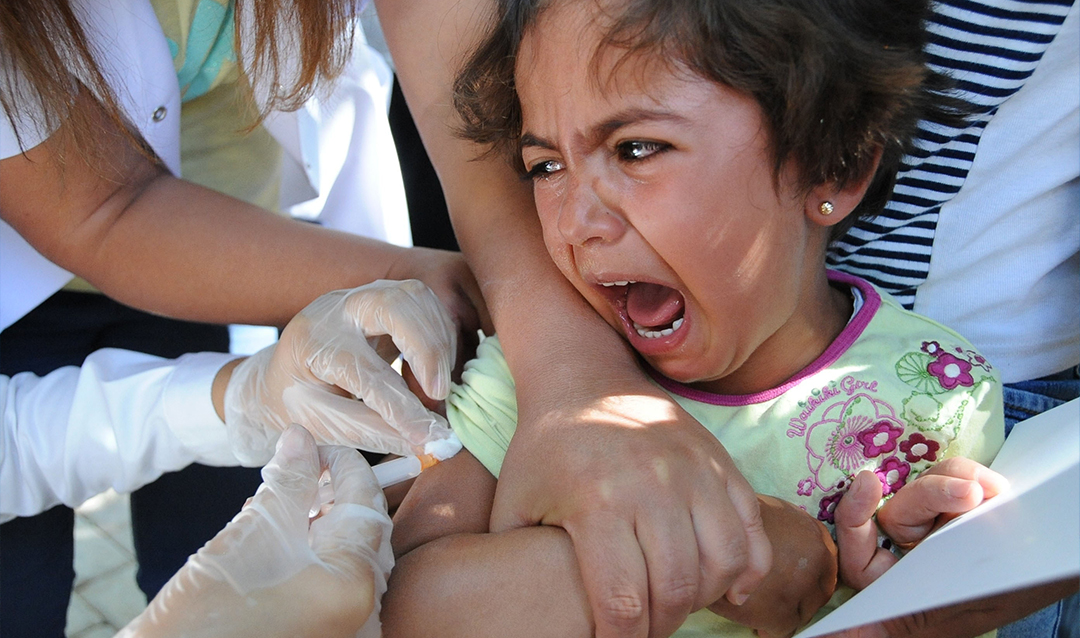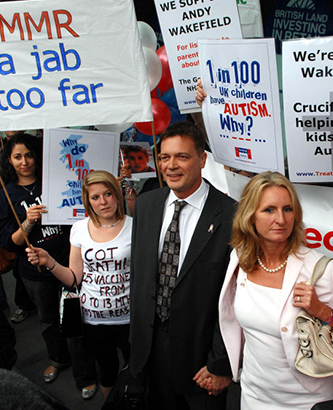The issue took on a new urgency in 2019, when measles, a highly contagious and potentially life-threatening disease, made a resurgence. That year, the Centers for Disease Control and Prevention reported 1,282 cases of measles in 31 states—the largest number of reported measles cases since 1992.
In a new study, "Confirmatory Bias in Health Decisions: Evidence from the MMR-Autism Controversy," economists Shin-Yi Chou, the Arthur F. Searing Professof of Economics; Ernest Lai, the Class of ‘61 Associate Professor of Economics; and former graduate student Mengcen Qian use the ongoing controversy as a natural experiment to investigate how conflicting information figures into health decisions.
Earlier studies using U.K. and U.S. data showed an educational gap in vaccinations: Children in more educated families were more likely to delay their MMR vaccinations. Chou and Qian, as a starting point in their empirical study, found the same trend in the U.S. from 1998 to 2011. In examining the data in connection with parents’ exposure to vaccine safety information, they found “an interesting asymmetry”—a stronger response to negative news than positive news.
Quantifying relevant newspaper coverage and online searches, they found the immunization rate among the more educated group had decreased substantially more in response to negative news about the MMR vaccine than had increased in response to positive news.
To Lai, who constructed a behavioral economic model to complement the empirical analysis, the trend suggested confirmatory bias—people’s tendency to select and interpret information that confirms their existing beliefs. The more educated parents likely had more exposure to the initial misinformation about the vaccine, he says, and the bias affected them more.
“It’s something that psychologists have documented in the lab for a long time, but few studies have examined such biases in a real-world setting,” says Lai. “If I run into some fact that is contradictory to my beliefs, it’s painful to me. A natural response is, I would try to avoid such information, or I would selectively search for information that would be consistent with my beliefs.”
The study appeared in the Journal of Health Economics.
The researchers also found that online information, whether positive or negative, has the strongest impact on vaccination rates. Though not conclusive, Lai says, this suggests that health advocates could better tackle biases by putting more resources online to spread the information that vaccines are safe.






